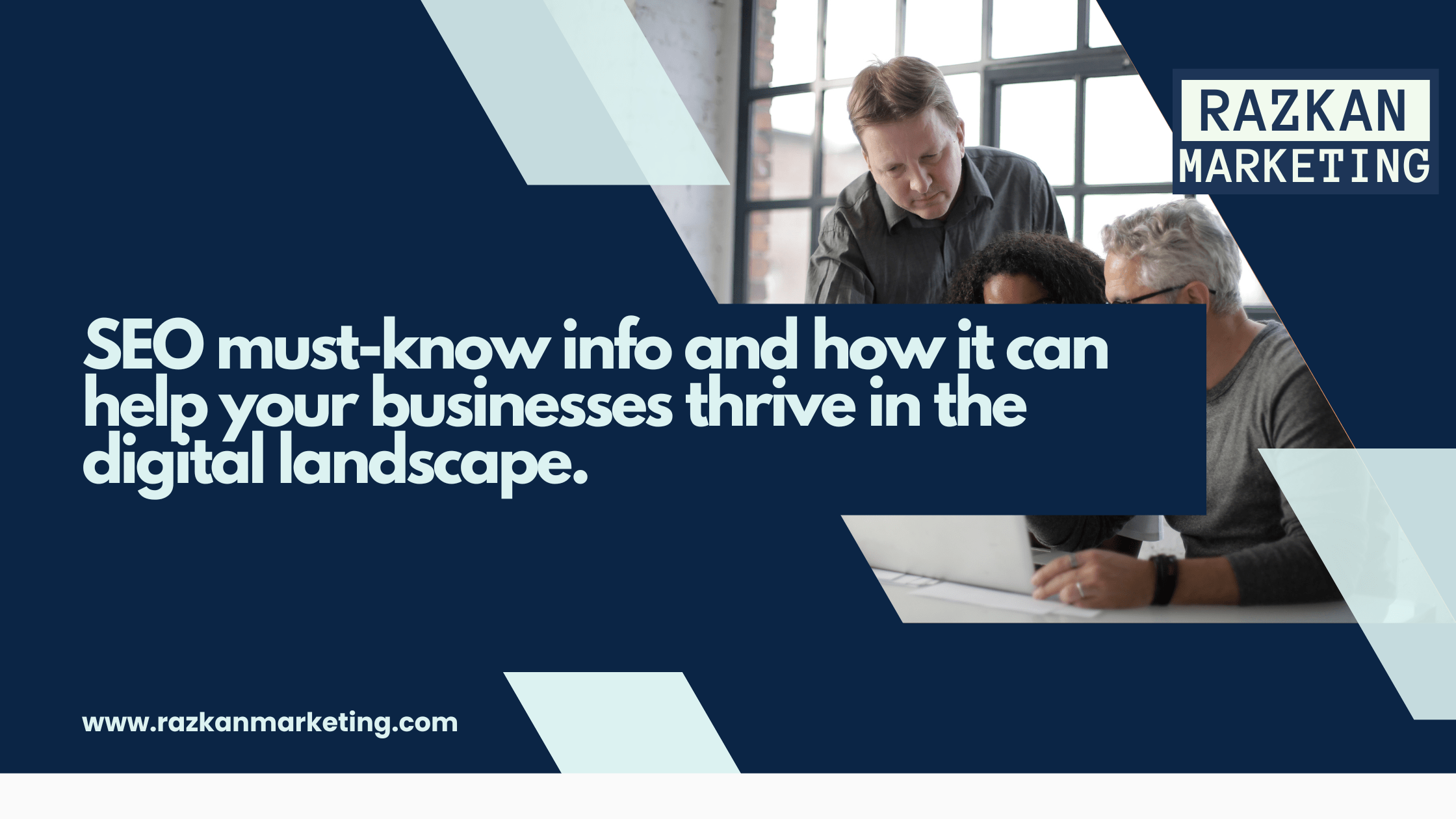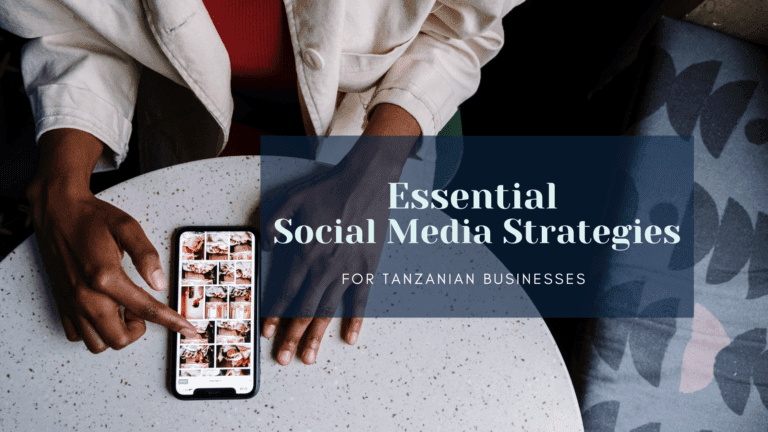Introduction
If you’re a business owner in Tanzania like me, you’re probably always on the lookout for ways to boost your business’s online presence.
Today, I want to share some insights about Search Engine Optimization (SEO). As an expert in the field, I’ll guide you through the must-know info and how it can help Tanzanian businesses thrive in the digital landscape.
Here's what we'll cover:
Let’s dive into the world of SEO.
What is Search Engine Optimization (SEO)?
Search Engine Optimization (SEO) is the process of optimizing your website so that it ranks higher on search engine results pages (SERPs) like Google.
When potential customers search for products or services related to your business, the higher your site ranks, the more visibility it gets, leading to more traffic and clients.
How does a search engine work?
A platform like Google uses bots to crawl pages on the web, going from site to site, collecting information about these pages, and indexing them.
Then analyze the pages to determine the order they appear in the SERPs when you type in a query.
Why is SEO Important for Tanzanian Businesses?
SEO involves various strategies and techniques that work together to boost your website’s ranking, therefore having a strong online presence is crucial for businesses in Tanzania.
Here are a few reasons why SEO optimization is essential:
– Increased Visibility: Most people use search engines to find products and services. By optimizing your website for search engines, you ensure that your business appears at the top of search results.
– Cost-Effective: While SEO marketing requires an initial investment of time and resources with long term benefits unlike paid ads, organic traffic generated through search optimization doesn’t require a constant budget.
– Local Reach: With proper web search optimisation, you can target local customers in any area like Arusha, Moshi, Dar es Salaam and beyond.. Making your approach specific to your audience turns them into loyal customers.
Types of SEO
On-page SEO
On-page SEO focuses on optimizing individual web pages to rank higher and earn more relevant traffic in search engines. Here are the key elements:
- Content Quality and Keyword Optimization: High-quality content that answers users’ questions and integrates relevant keywords naturally.
- Meta Tags, Titles, and Descriptions: Crafting compelling meta titles and descriptions that include target keywords.
- Internal Linking: Creating a network of links within your website to improve navigation and user experience.
Off-Page SEO
Off-Page SEO involves actions taken outside of your own website to impact your rankings within search engine results pages.
- Backlink Building: Acquiring links from other reputable websites to enhance your site’s domain authority.
- Social Signals: Leveraging social media platforms to increase visibility and drive traffic to your website.
Technical SEO
Technical SEO focuses on improving the technical aspects of your website to increase the ranking of its pages.
- Site Speed and Mobile-Friendliness: Ensuring your site loads quickly and is optimized for mobile devices.
- XML Sitemaps and Robot.txt: Using these tools to help search engines crawl your site more efficiently.
- Structured Data: Implementing schema markup to help search engines understand your content better.
How to Get Started with SEO
Getting started with SEO services might seem daunting, but it doesn’t have to be you can achieve significant results on your own.
Here are some simple steps you can take:
1. Keyword Research
Keywords are the foundation of SEO. Identify the terms and phrases your potential customers use to search for products or services. Tools like Google Keyword Planner, SEMrush and Ahrefs SEO tools can be really helpful.
For example, keywords like “best restaurants in Dar es Salaam” or “affordable electronics in Tanzania” can attract local traffic.
2. Optimize Your Website
Make sure your website is user-friendly and fast.
Here are some tips:
– Mobile Optimization: Ensure your site is mobile-friendly since many users in Tanzania browse on their phones.
– Speed: A slow website can drive visitors away. Use tools like Google PageSpeed Insights to improve your site’s loading time.
– Content: Create valuable and engaging content that answers your customers’ questions. Blogs, product descriptions, and customer testimonials can be great.
3. Local SEO
Local SEO focuses on optimizing your businesses online presence in local searches results, making it easier for local customers to find you.
Here’s how you can improve your local SEO:
– Google My Business: Claim and optimize your Google My Business listing. This helps your business appear in local searches and Google Maps.
– Local Keywords: Use local keywords in your content, such as “SEO services in Dar es Salaam.”
– Reviews: Encourage happy customers to leave positive reviews online. Reviews can significantly impact your local rankings.
4. Backlinks
Backlinks are links from other websites to yours. They are like votes of confidence and can improve your search rankings.
Here are some ways to get backlinks:
– Guest Blogging: Write articles for other websites and include a link back to your site.
– Partnerships: Collaborate with other local businesses and link to each other’s sites.
– Quality Content: Create content that others want to link to, such as informative blog posts or infographics.
Monitoring and Adjusting Your SEO Strategy
SEO is not a one-time effort. It’s important to monitor your progress and make adjustments as needed.
Use tools like Google Analytics to track your website’s performance and see what’s working, and user behaviour on your site.
Conclusion
Investing in SEO marketing can make a significant difference in your business’s online presence and growth.
By following these steps and continuously improving your search optimization efforts, you’ll be well on your way to attracting more customers and increasing your revenue.
Remember, SEO is a marathon, not a sprint. It takes time to see results, but the long-term benefits are well worth the effort. If you have any questions or need further assistance, feel free to reach out.
Frequently Asked Questions (FAQs):
What is the difference between SEO and SEM?
SEO focuses on optimizing your site to rank higher in organic search results, which search engine marketing (SEM) involves paid search strategies.
How long does it take to see results from SEO?
Typically, it can take 3-6 months to start seeing significant results from SEO efforts.
What are common SEO mistakes to avoid?
- Keyword Stuffing
- Ignoring Mobile Optimization
- Neglecting Meta Descriptions and Titles
Happy optimizing!
—
I hope you found this post helpful. If you did, please share it with other business owners who might benefit from these tips.
Let’s grow our businesses together!




